Is the Election a Civilizational Turning Point? Why Musk is Really Backing Trump
by Michael DB Harvey
Has Elon Musk finally lost his mind? Seeing him cavorting on stage with Donald Trump in Butler, Pennsylvania, pouring tens of millions of dollars into the convicted felon’s presidential campaign and declaring that the upcoming election could be the last one ever, one might think so. But Musk’s political drift rightwards has long had an air of inevitability about it. And there is much more behind his new support for MAGA politics than meets the eye.
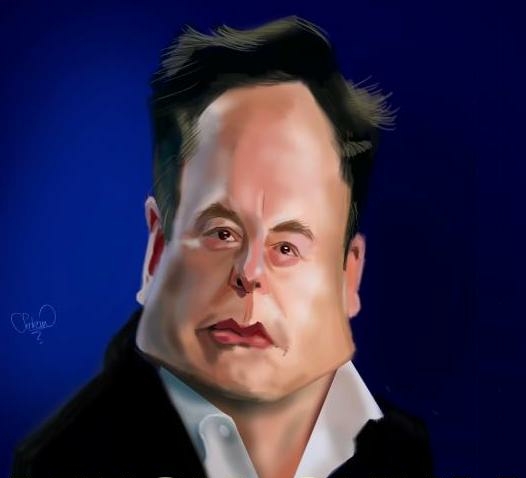
Elon Musk (TheConnCave, Flickr).
Indeed, it’s no exaggeration to say next month’s election could represent a decisive tipping point not simply for American democracy, but for the entire future of humanity. Musk may be a risk junkie, but his bet on Trump is an attempt to pave the way for his own vision of the future. It is a vision for an existentially transformative technological civilization that he has been jockeying to shape along with his fellow Big Tech magnates for the past quarter century. It is a vision in which the rest of us have virtually no say.
Yes, Musk’s espousal of hard right politics is jolting. This is especially the case if we consider his support for Barack Obama barely a decade ago and his contemptuous dismissal of Trump as recently as 2022 as “the world champion of bullshit” (p. 555). Musk’s abandonment of centrist politics probably owes something to his descent into the Twitter culture wars. In his own words, he acquired the platform to put a stop to what he calls the “woke mind virus.” At the root, this stems from a rejection of what progressives might call cultural egalitarianism—a rejection further inflamed by his daughter Jenna’s gender transition and her stinging criticism of capitalist billionaires.
In reality, Musk’s lurch to the right is mainly driven by something he has been fighting his entire career: government regulation of business. At a micro level, questioning every piece of industrial regulation affecting his business ventures has been a key to his success. Walter Isaacson, Musk’s biographer, lays out this organizational strategy in fascinating detail. At a macro level, the pandemic lockdowns accelerated Musk’s aversion to workforce regulation. This was already evident from his aggressively anti-union stance at Tesla. It also triggered his decision to move the automaker’s operations from what he saw as overregulated California to regulation-lite Texas.
Deregulation and the Human-Machine Fusion Program
In fact, keeping technological development out of the hands of regulators is crucial not just to Musk. It is a strategy shared by all the billionaire leaders of Big Tech in the twenty-first century. The idea is to keep the path clear toward their ultimate goal: the fusion of human and machines. My new book The Age of Humachines describes this vast process impacting every industry and every facet of life. All this in pursuit of a future in which Google’s Ray Kurzweil predicted in 2005 “there won’t be a distinction between humans and technology.”
For Kurzweil, whose philosophy is almost a religion in Silicon Valley, that means transhumanism, the superintelligence explosion of the Singularity, and ultimately the total reengineering of biology by physics. Then there is Peter Thiel, the billionaire co-founder of surveillance giant Palantir, who played a significant role in the making of Musk’s first fortune at PayPal. For him, the political implications of this mission to technologize everything and everyone has always been clear.
In 2009, Thiel declared that technological innovation is superior to democracy in providing people with what they really want. This infamously led him to dismiss the importance of voting for women. The dramatic opening to Thiel’s essay on libertarianism—“I stand against confiscatory taxes, totalitarian collectives, and the ideology of the inevitability of death”—neatly sums up the merger of extreme economic neoliberalism and a belief in no-limits, “post-biological” ultrascience. I dub this belief “ontocapitalism,” because of its single-minded dedication to nothing less than the transformation of human existence. Thiel’s support for Trump in 2016 marked a more aggressive politicization of his views. He has followed up this endorsement by funding numerous hard-right Republican candidates, most notably Trump’s VP pick JD Vance.
Musk, of course, is notoriously his own man, and he has his own “humachination” agenda. In his own words, he wants to turn humans into “a multiplanetary species” capable of colonizing Mars (p. 5). He sees the narrowing of the space between humans and technology as unstoppable. This view has been partially influenced by his erstwhile friend, Larry Page’s, intention to create software that is more intelligent than humans. For Page, AGI, or superintelligence, is inevitable. If this means that machine civilization eventually surpasses that of humans, so be it (p. 241).
Musk demurs on this point (reportedly the two no longer speak). But he agrees with Page that automation will replace every occupation. (“There will come a point when no job is needed,” he told a bemused British Prime Minister last year (Harvey 2024: 23).) At the same time, Musk was among those quixotically calling on governments to regulate generative AI’s large language models. Since then he seems to have u-turned and launched his own AI company to compete with OpenAI and Google’s DeepMind. This suggests he now leans towards the kind of regulation traditionally most favored by monopolistic industries: self-regulation.
Musk’s Post-biological Agenda: Defusing the Threat of AGI by Fusing with It
AI is fundamental to all Musk’s ventures—especially Tesla, which he is increasingly presenting as a robotics company, featuring not only electric vehicles but a range of humanoid robots. Indeed, the self-driving vehicle—such as Tesla’s recently unveiled Cybercab—is really a robotic humachine, a transportation device that is also an interactive, technologized environment. And without AI, SpaceX can never achieve the massive cost efficiency breakthroughs necessary to reach Mars. But humanizing machines will not be enough to colonize the red planet.
Mechanization of humans will also be necessary to embark on the space colonialism central to the Humachine ideology. For Musk’s space rival, Jeff Bezos, it’s not just Mars but a trillion-inhabitant solar system that is the aim. He sees this as the only way to avoid the collapse of economic growth on Earth.
Post-biological humanity is the ultimate goal behind Musk’s development of Neuralink. Recently, the company has become licensed to experiment with implanting computerized brain electrodes into human subjects. This dovetails with Kurzweil’s 2024 update to The Singularity is Near, in which merging humans with AI takes a lead role. Both humachinators seem to think that this somehow aligns AI with human values, thus mitigating the existential risks of AGI. In truth, these risks are unquantifiable and unlimited. A digital-robotic force that is potentially thousands of times better at solving problems than humanity is, by definition, utterly unpredictable—a true “unknown unknown,” in fact.
This extreme danger seems lost on Musk. Like other humachinators, he regards the human brain as a piece of software running a human body that is essentially hardware. This mechanistic fallacy goes back to the beginning of the Western Science Revolution and the dualist philosophy of Hobbes and Descartes. But it flies in the face of modern systems-based life scientists who recognize that the brain is a living, individually and socially embodied organ whose immense complexity neuroscience has barely scratched. Musk, who often talks about himself as though he were a computer, is typical of the “machine mindset” that dominates Big Tech. This is a psychology characterized by a geeky, quantitatively-obsessed tunnel vision often sorely lacking in empathy or social awareness.
Perhaps for this reason, Musk seems to accept as inevitable other areas of human-machine fusion he has not dabbled in (yet), such as human genetic engineering. For example, he’s hesitant about personal eugenics, citing “the Hitler problem.” But he believes that in the end, “we are going to have to reprogram our DNA…It’s software.” Other humachinators are less reserved and enthusiastically advocate the manipulation of the human genome for a variety of goals. This spans from eliminating hereditary diseases to boosting intelligence and personal appearance—and even extends to human cloning, perhaps starting with pets. All these biotechnologies are currently illegal—and rightly so. But for how long will the bioethical walls be able to withstand the deregulatory army of well-heeled investors?
Elon Musk and the Election
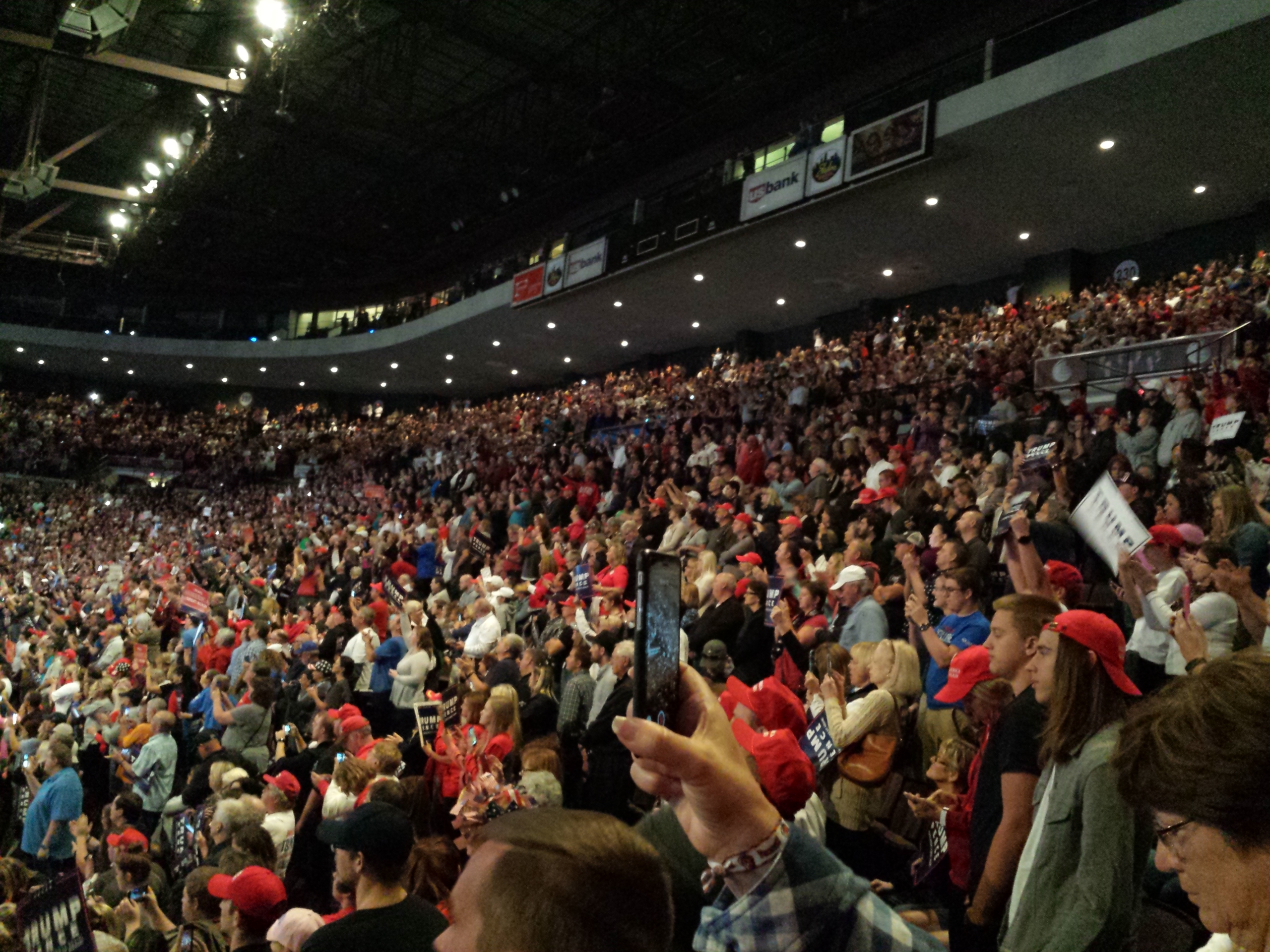
Crowd at a Trump rally in Cincinnati (Bill Huber, Flickr).
So how much of this is likely to feature in Trump’s election manifesto? The answer, of course, is none of it. That’s because when it comes to regulation, what’s not said often speaks loudest. So far Musk and other titans of the Humachine Age have been able to get away with incredibly low levels of democratic oversight, as their towering trillion-dollar technology conglomerates have emerged seemingly out of nowhere.
Now at last regulators are waking up, alarmed by the harms of social media and the job-consuming potential of AI. Even some godfathers of machine learning like recent Nobel laureate Geoffrey Hinton now argue the latest developments are out of control. Biden’s Executive Order on AI safety, the EU’s AI Act and the UK’s Online Safety Act, and other emerging legislation spell the end of the first phase of the Age of Humachines. There is now even a possibility that Google will be broken up for its anti-competitive practices. And Musk, the world’s richest man, whose corporations include not only America’s largest auto manufacturer but also X, xAI, Neuralink, the Boring Company, the Starlink global internet satellite system, and virtually the entire US space program, is an obvious target for the anti-trust lobby.
Whether any of this new legislation is actually enforced will be a key question for the next four years. This is true regardless of who wins the election. A Kamala Harris administration is more likely to curtail the freewheeling development of AI and other ontocapitalist ventures than a government led by Trump. This will be especially true if he owes his win to Musk and other Big Tech backers, such as billionaire fund manager Marc Andreessen. (Andreessen lists among the “enemies” of technological accelerationism “sustainability”, “trust and safety” and “tech ethics.” Nor should we underestimate the effects of Musk’s campaigning in the battleground states, where he is paying voters to sign his right-leaning petition and even holding a daily $1 million lottery for signees.)
Trump may have little interest in technology development. But he knows which way American capitalism is heading if we keep ignoring the limits to growth. Hence his 2020 Davos speech on reducing “job-killing regulations”, praising technological innovators and castigating environmental and climate “prophets of doom.” The cold-eyed rationale behind Musk’s bet is surely that under Trump, much of the retrospective regulation currently on the statute book will turn out to be toothless. And the most important type of regulation will not even be attempted. By this I mean the future-facing, prospective legislation that could head off at the pass multi-planetary transhumanism, the AGI digital god and the automation of virtually every human job. In these circumstances, the next stage of the Age of Humachines could accelerate unchecked. This would lead to irreversible changes in what it is to be human, led by an increasingly authoritarian techno-elite.
So potentially the election on November 5 is like no other in human history. The outcome could be truly existential, a civilizational parting of the ways and the abandonment of what could still be a sustainable, equitable future for all. If Trump’s exclusionary, racist and anti-democratic agenda prevails, the consequences for American democracy could be shattering. But the stakes for humanity as a whole could be incomparably greater. At least in one respect Musk is right: make sure your vote counts!
Michael DB Harvey is an organizational psychologist, political ecologist and future-gazer, based in London, UK. His latest book is The Age of Humachines: Big Tech and the Battle for Humanity’s Future.

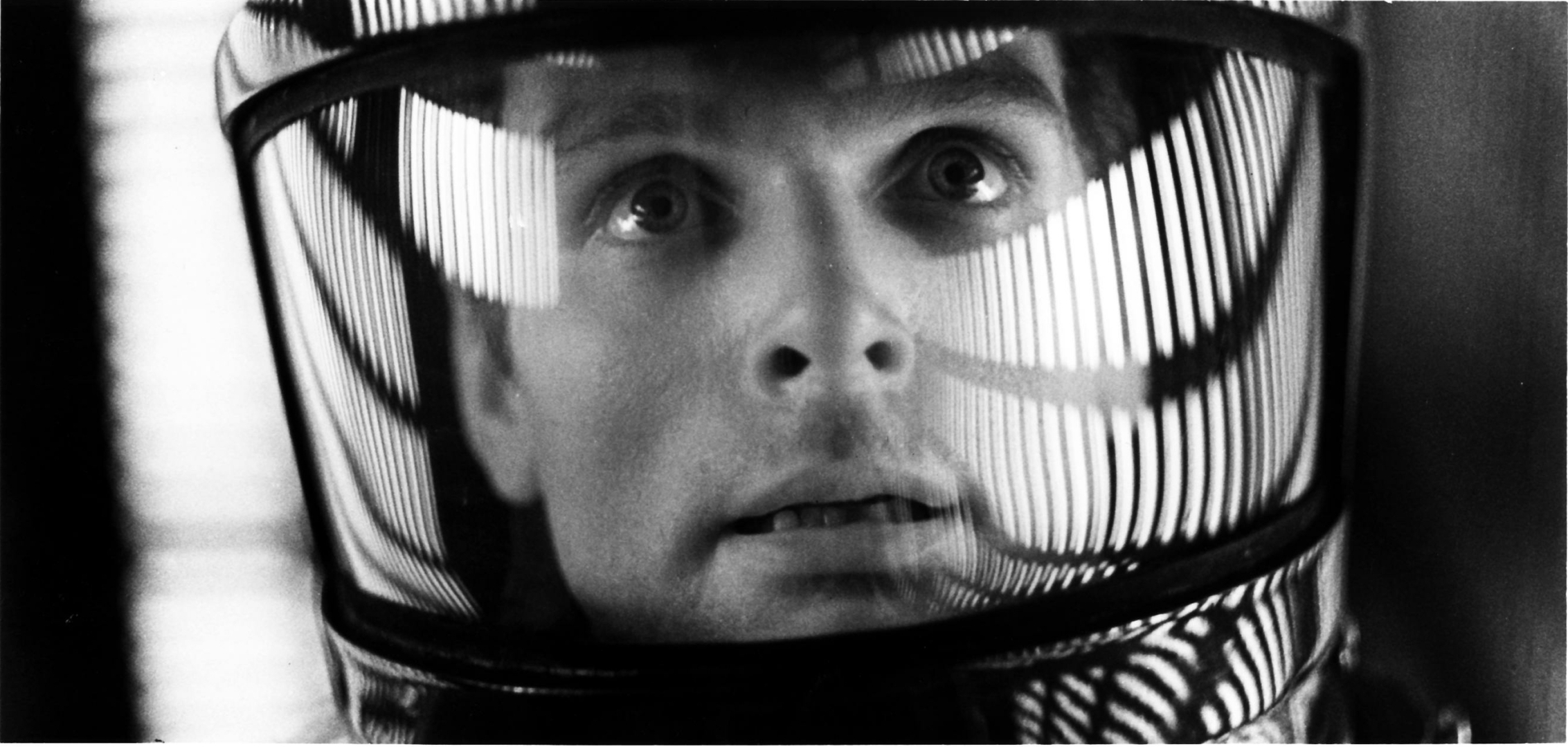
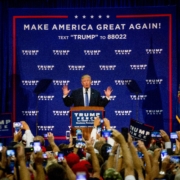


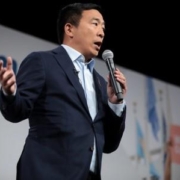

Regarding Musk, I patiently watched a 20 minute interview with him, with a deliberately neutral mindset.
Musk seems to see any problem as a matter of going back to “first principles” as he calls it, a physics term meaning what do we know is absolutely true, and can be (usually) described in a mathematical way. That’s good for mechanical problems, such as: why can’t a car be assembled 10 or even 100 times faster than today? Will the parts deform if the metal is rushed around like a blur? Well, no, so in fact, it’s possible to assemble a mechanical object like a car at breathtaking speed, if we want to. So, in the realm of brash solutions to very specific problems in the engineering world, I will give Musk a point in the win column.
However, that sort of “first principles” thinking fails with complex problems that we humans are struggling to even understand correctly. The example that stuck with me from the interview was Musk’s understanding of potential overpopulation. His assessment was that the entire human population would fit on the island of Manhattan, ergo, overpopulation cannot be an issue. Erm… Elon, my man, physical volume occupied by human bodies is not the concern, lol. The real concerns, involving resource inputs, waste sinks, food webs, dispersal of complex synthetic molecules and the ability of mammalian systems to deal with the same, and much much more, is complicated stuff indeed.
I’d say that modern challenges and problems tend to elicit one of two responses in people:
1) problem XYZ is a wickedly hard problem, and we’re carefully testing our hypotheses and testing the boundaries of our models because frankly, we’re not sure we understand this 100%. This kind of thinking characterizes fusion energy research and medical research
2) problem XYZ can be reduced to a one or two variable equation in algebra. Voila, we’re done!
The second approach is easier, but like a missed medical diagnosis, can be disastrous.
I have heard this statement and will repeat it:
– “Musk is what dumb people think smart people sound like”
And he has a platform for this voice of “it’s easy”. He said “Hyperloop .. it’s not that hard” and scammed California out of more progress on the developments of the high speed rail which he actually said was the intention.
My personal motto: “The world is not run by smart people …. it is run by loud people”
That stands for past decades and futures to come.
“The world is not run by smart people …. it is run by loud people”
Spot on. I hope I can borrow that, if that’s OK.
I want that statement to out-live me. Basically make it as wide-reaching as possible. Though I “invented that” – it is so true that I don’t even want to be credited.
He wants automation. He wants to remove millions of jobs from the worlds’ payrolls. To save “businessmen money”. Robotaxis and Robots, to name two elements. Because they appeared maybe in some 1960s or 1970s movie he watched. Not because people are clamoring for them.
It looks to me like the beginning of a dark age. A failure of cooperation. Rise of desperate selfishness. Power and violence fracturing humanity and destroying the planet. Having chosen growth (of both population and economic output) over limits and sustainability, humanity will likely suffer major dieoffs. Sudan conditions in much of the globe. Joseph Tainter wrote that the costs of maintaining complex, unjust civilizations eventually becomes too high. After a collapse, the benefits of the complex system are lost and people are much worse off, often for centuries or permanently. A 4 degree hotter world is in the cards. That will cause famines, storm damage, fires, and drown many of the world’s largest cities. Our species population dynamics has been overshoot and collapse since the beginning of agriculture which eventually destroys soils.
Recent studies of farming shows that organic manure used is far better for the soils than the synthetic fertilizers used on factory farms. The Amish – they have had it right for centuries as have many Indian and other large-scale farming communities. The factory farms exist to feed the growing population and the livestocks that also feed them. If collapse was predicted – it isn’t here yet. The dangers to humanity come from cultures and not resources (so far). When one culture and religion wants to “win” over the other by destroying them per their book of beliefs, that is a large danger. We now have a USA with at least one leadership candidate de-humanizing outsiders in a patriotism-named (racist-based) ideal. This is not too far from say the Islam community wanting to ultimately win over the non-Islam world. Humanity is still broken but resources are not yet at that breaking point since technology keeps helping create synthetic farming solutions (sea and land). But it feels so close. Like David Suzuki’s bacteria in a food-laden test tube scenario.
Alas, I tend to agree. Five years ago I was a bit more optimistic but current trends, and the energy behind those trends, have me just shaking my head in disbelief at decisions being made. Not just in the US, but in China, India, Indonesia, and so many other places. Sigh.
Musk cozying up to Trump well suits his business model. Under Trump trans global business deals shall override the geopolitical division between the west and the BRICS. A world united in the pursuit of corporate profit and growth , democracy diminished with increased tension and fear in disputed places like Taiwan, Ukraine and maybe Korea next.
The current push is to reduce regulations – so businesses can profit easier. Faster approvals for dangerous things (like Robotaxis, medical things, zoning and construction, all the rest). Basically those are moves that places like China do to force growth at all costs and who cares if there is fallout.